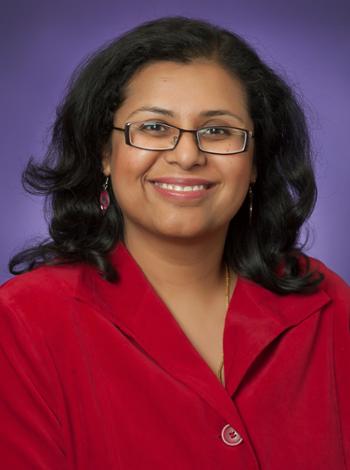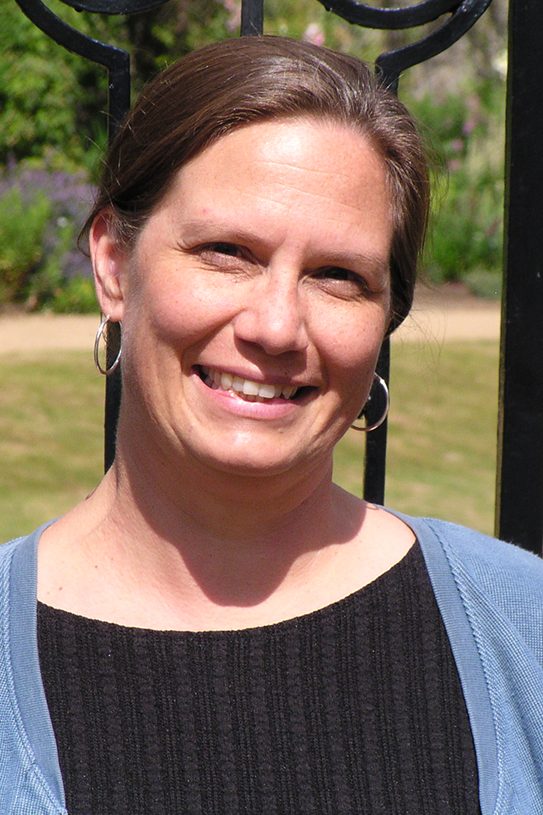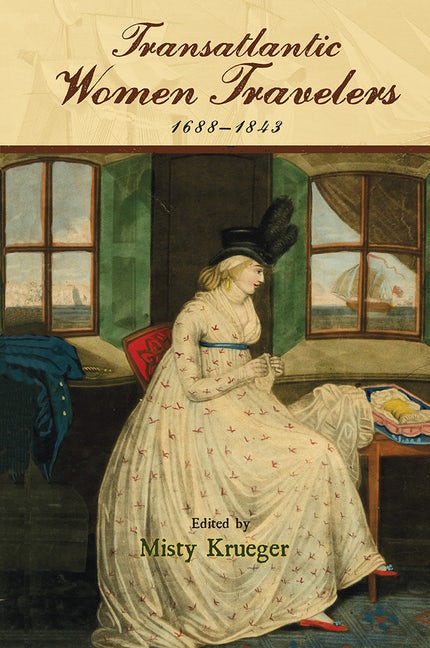A Discussion with the Series Editors
A landmark series in the long eighteenth-century and Romantic era, Transits: Literature, Thought & Culture, 1650-1850 publishes books that are timely, transformative, and global in their engagement with arts, literature, culture, and history. Here, we talk with series co-editors Miriam Wallace and Mona Narain about their vision for the series, their new board of advisors, and the continuing relevance of long eighteenth-century studies in changing times.
Q: Eighteenth-century studies has been long associated with a few, dominant figures and with traditional modes of reading texts. The Transits series invites projects that make “provocative connections between postcolonial and decolonial studies, that develop new modes of critical imagining such as those offered by critical race scholarship and the intersections among gender, sexuality, and disability studies.” How does your vision for the Transits series expand traditional thinking in the field?
[Mona]: Traditional eighteenth-century studies has had an interdisciplinary focus largely on Europe and the Anglo-Americas. The Transits series expands this focus further geographically and culturally, considering connections and entanglements across the globe. Transits also encourages new methodologies, emergent in western academia as well as other scholarly locations, that can energize the study of both canonical and different texts.
[Miriam]: I might focus here on “reading” and “texts”—reading stands in for numerous ways to think about the interpretive work that humanists do. We attend carefully to details, whether of language and metaphor or of materials like fabric or painting. And “texts” is such a wonderfully flexible term—taking up the written words of a book, but also the paratextual elements such as puffs, subscription lists, reviews, and visual materials from high art to portraiture to illustration. So while “literature” in the broad sense is central, I’m also excited by work that presses on that concept, belles lettres and beyond—including “texts” that may not be primarily written (bodies, images, textiles, botanical). I’m hoping to be surprised and intrigued.
Q: How will the new Transits advisory board help reflect and extend your vision for the series?
Our board of advisors is composed of scholars who bring considerable expertise and who do precisely the kind of innovative work that we hope to attract to the series. We see these scholars both as models for aspiring authors and as our collaborators in keeping the series fresh and responsive. They represent a range of geographies, histories, critical methods, and cultural concerns that are central to the series, and many are BUP authors themselves. (See, for example, Manu Chander’s Brown Romantics and Jason Farr’s Novel Bodies.) Practically speaking, the board helps us to match readers to manuscripts, to reach scholars doing similarly innovative work, and to publicize new books in the series. Last but not least, the board helps us to keep our fingers on the pulse of new lines of thought developing in the field.
Q: As series editors, what do you look for in book proposals?
A book proposal is itself a genre of persuasive and imaginative writing—one that needs to bring the reader along and invite us in. A good proposal entices the reader, persuasively outlining an original approach and a coherent plan for a book—that is, a project that needs to be a book to have its full impact. We look for proposals that are readable, clear, show familiarity with current scholarship, but most of all that intrigue us—these are proposals and books we want to read!
Proposals should situate the project’s argument within current scholarship and effectively articulate how the project will extend or contribute to current scholarship. Chapter descriptions should be well-fleshed out so that we can see the book’s shape in embryo.
Tell us about the origins of the project. Did it begin life as a dissertation? If so, how has it been reconceived, and for what audience? Or are its roots in archival work that has expanded beyond the original intention? Or perhaps this project is a collection that developed out of a conference panel or two and is now ready to expand into a full-length work?
The proposal should include a realistic timeline for completion—we’d prefer to have a strong project that takes more time than one that is rushed forward. Some idea of the length or approximate word count is also very helpful. And our proposal form asks authors to indicate a sense of audience and some key works that they envision theirs sitting alongside—what does your bookshelf look like and where does your imagined book sit?
We are all the inheritors of the long eighteenth century.
Miriam Wallace and Mona Narain
Q: Why is it important to continue bringing fresh perspectives into eighteenth-century studies? In what ways is the eighteenth-century still relevant to today?
The long eighteenth century from 1650 to 1850 is complex and contradictory, encompassing both the concepts of Enlightenment and Romanticism, but also a period of rapid modernization and reverence for classicism. It was a period of exploration and colonization, of developing human rights and institutionalized abrogation of rights. Areas of intellectual study that found disciplines from literature to natural sciences were formalized, and world geographies were mapped in ways that still resonate today. It was also a period that saw the emergence of new voices and interlocutors—and struggles over global modes of communication including print publication.
While many aspects of the eighteenth century have been productively studied by scholars in the last half century, more sustained work is needed on global connections, multilinguistic archival work, and new interdisciplinary methods. The establishment and flourishing of empires and slavery, the increased circulation of global capital, and the geographical conditions that define our global climate have their roots in this period. We are all the inheritors of the long eighteenth century.
Q: What forthcoming books in the series are you most excited about?
[Mona] Knowing her previous publications, I am excited about Linda Van Blimke’s forthcoming book, Political Affairs of the Heart: Female Travel Writers, the Sentimental Travelogue, and Revolution, 1775-1800. This monograph joins a long list of BUP books on women travelers—including Transatlantic Women Travelers, edited by Misty Krueger, which is just out.
[Miriam] I’m particularly excited about Lindsey Eckert’s forthcoming The Limits of Familiarity: Authorship and Romantic Readers. Eckert’s book explores the cultural value of “familiarity”— an often-dismissed feeling of emotional closeness and comfortable predictability that she sees as foundational to Romanticism as what I might call a “structure of feeling.” Eckert’s book is compelling reading and intersects with recent interest in affect, celebrity, and reception studies.
Other projects currently under consideration touch on transatlantic ecologies and social justice; on animals and the Romantic era; on women and music in Georgian Britain; on landscape and gender; on drama and theatricality in multiple frames from theatrical couples to radical reform; social injustice and French thought; and on the consumption of goods and foodstuffs as ways to navigate Orientalisms. We are delighted by the breadth and richness of the work that is coming our way, promising to keep the series active and impactful.
Transits Advisory Board Members
Manu Samriti Chander is associate professor of English at Rutgers University-Newark, where he specializes in nineteenth-century studies and colonial/postcolonial literatures. He is the author of Brown Romantics (Bucknell, 2017), the editor of The Collected Works of Egbert Martin (Oxford, forthcoming), and a founding member of the Bigger 6 Collective.
Jason Farr, Marquette University, specializes in British literature and culture of the long eighteenth century with an emphasis on disability and queer studies, health humanities, and sound studies.
Patricia A. Matthew, associate professor of English at Montclair State University, is a specialist in the history of the novel, Romantic-era fiction, and British abolitionist literature and culture. A founding member of the Bigger6 Collective, she is interested in methodologically inventive projects that reimagine historical and geographical boundaries.
Louis Kirk McAuley, associate professor of English at Washington State University, has written on transatlantic eighteenth-century print culture, shifting recently to focus on the intersections among literature, ecology, colonialism and empire. He remains keenly interested in Scottish studies, Gothic fiction (or the politics of horror), and scholarly work that attends to geographies, histories, cultures, and species.
Kate Parker (former co-editor of Transits) is associate professor in the department of English at the University of Wisconsin-La Crosse. Her work centers on social justice pedagogy and the histories of gender, sexuality and feminist activism in—and since—the eighteenth century.
Norbert Schürer teaches in the English department at California State University, Long Beach. His research focuses on Anglo-Indian literature, book history, and women’s writing in the long eighteenth century.
For information about submitting a book proposal to the Transits series, contact Suzanne Guiod at seg016@bucknell.edu.


